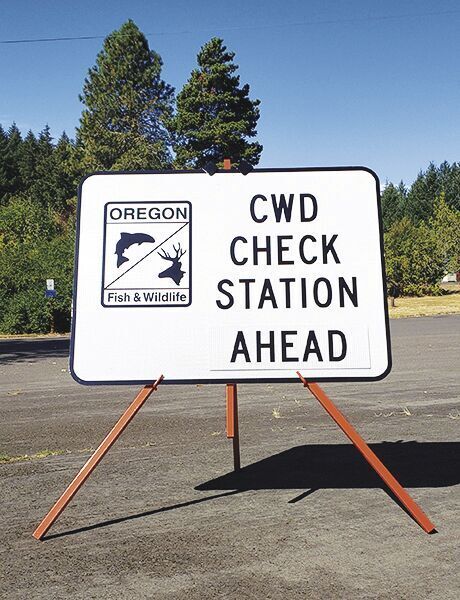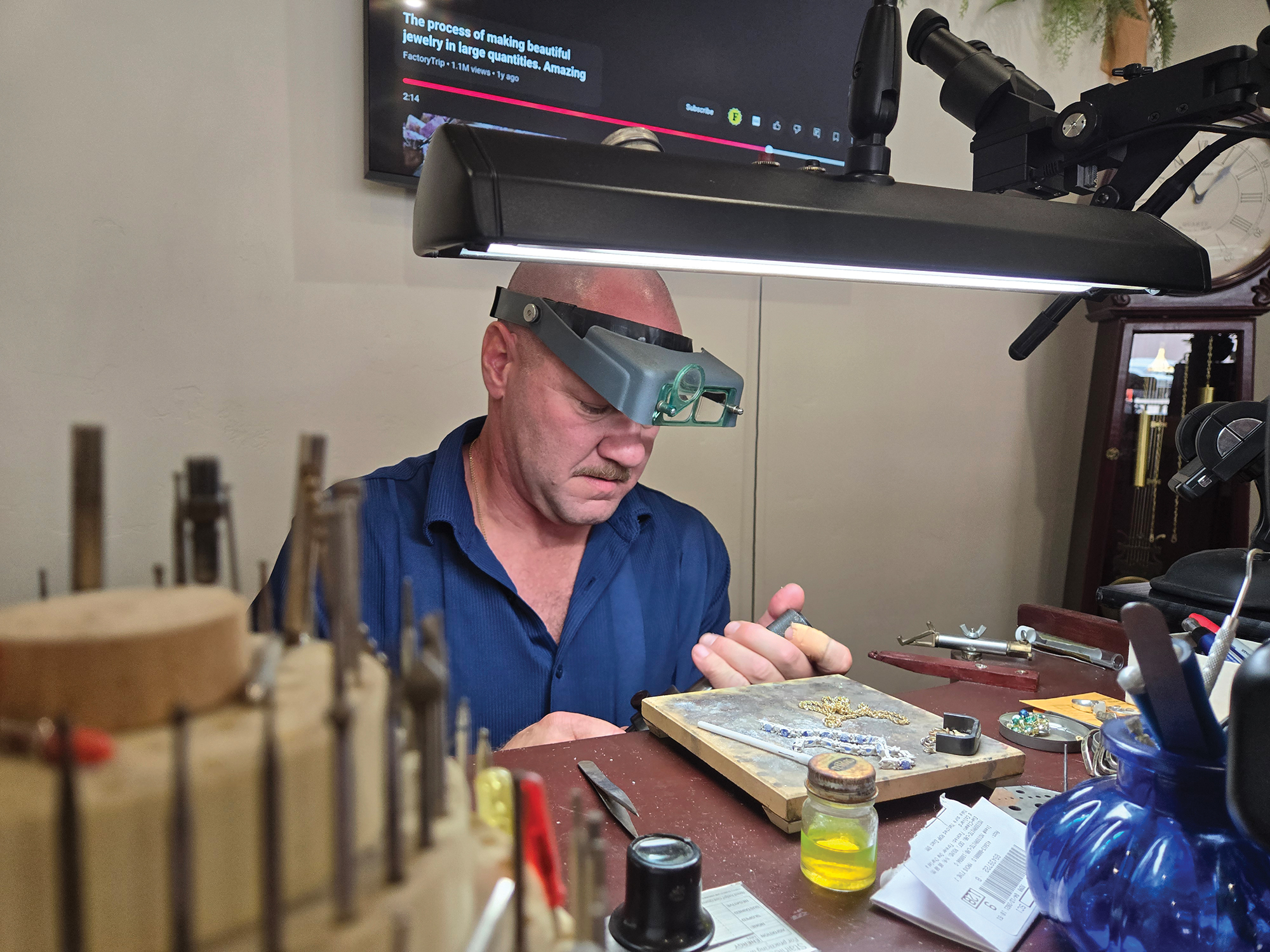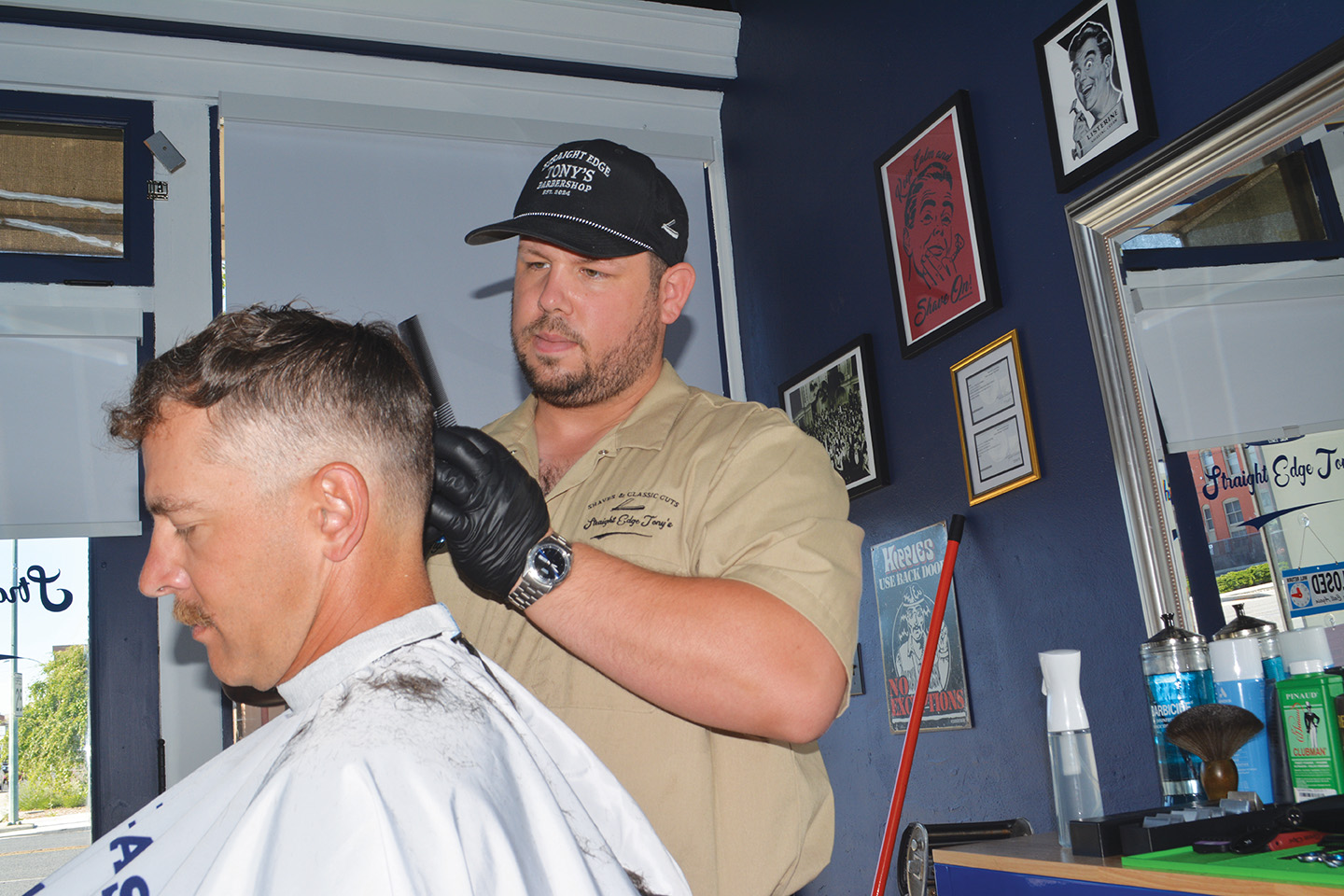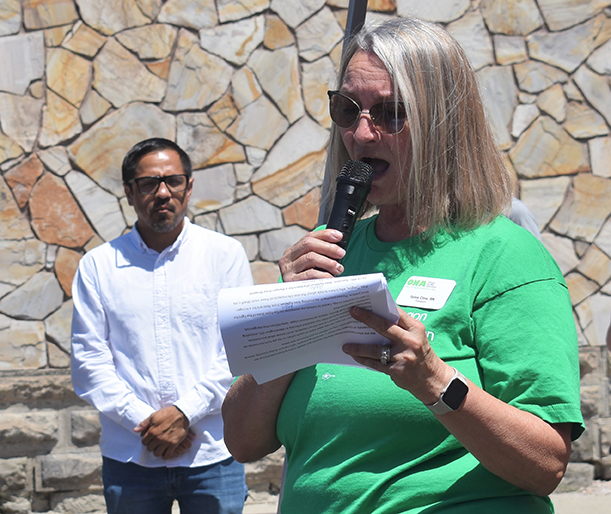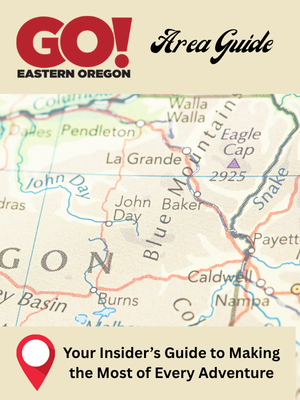Hunters urged to have deer, elk tested for chronic wasting disease
Published 8:26 am Thursday, September 19, 2024
SALEM — Hunters who bag a deer or elk this year have a chance to win a rifle with a scope, or a scope, if they have their animal tested for chronic wasting disease (CWD).
The Oregon Hunters Association is partnering with the Oregon Department of Fish and Wildlife to encourage hunters to have animals tested for the disease, which according to ODFW is always fatal to deer and elk that are infected.
The disease has never been confirmed in an Oregon animal, but it has been found in three of the states bordering Oregon — Washington, Idaho and California.
“With CWD detected in three bordering states, it is more imperative than ever for hunters to provide our unique contribution toward CWD detection by voluntarily getting our animals tested,” said OHA Policy Director Amy Patrick.
Hunters who have a deer or elk tested by April 1, 2025, will be entered in a drawing to win either a Howa 1500 .223 rifle with mounted Nikko Sterling Gamepro 4-12 by 40 mm scope, or a Sig Sauer Whiskey3 4-12 by 400 mm Quadplex scope.
OHA donated the prizes.
The winners will be drawn on April 30, 2025. Hunters will get one entry for each legally harvested deer or elk tested.
“Testing apparently healthy animals will help wildlife managers find this disease early, which is how we can slow or prevent the spread of CWD,” said Ashley Reeder, ODFW’s CWD coordinator. “Hunters are a critical part of this effort, so we are grateful to OHA for offering this incentive for hunters to get their animal tested.”
Hunters can get their deer or elk tested in a number of ways (details about each option are available at myodfw.com/articles/other-ways-get-your-animal-tested-cwd.
Visit an ODFW field office
Make an appointment at one of 23 ODFW field offices throughout the state where a biologist can take a sample, or drop off a head in a drop barrel (after hours, especially) at some locations. Hatcheries and ODFW headquarters don’t collect samples. A list of offices is available at the website above.
Offices in Northeastern Oregon include:
• Baker City, 2995 Hughes Lane, 541-523-5832.
• Enterprise, 65495 Alder Slope Road, 541-426-3279.
• Canyon City, 305 N. Canyon City Blvd., 541-575-1167.
• La Grande, 107 20th St., 541-963-2138.
• Ontario, 3814 Clark Blvd., 541-889-6975.
• Pendleton, 73471 Mytinger Lane, 541-276-2344.
Take your animal to a participating meat processor
A list of processors is available at the website above.
Ask your taxidermist
A list of participants is available at the website above.
Stop at one of the check stations operating during the opening weekends of deer and elk seasons
Hunters transporting wildlife are required by state law to stop at a check station if they pass one (hunters don’t have to go out of their way to visit a check station, but ODFW urges successful hunters to do so).
The schedule for deer season:
• Baker City: ODOT parking lot off Highway 86 just east of Interstate 84, Exit 302, Oct. 5-7, 10 a.m. to 6 p.m.
• Elgin Rodeo Grounds, 790 S 8th Ave., Oct. 5-7, 10 a.m. to 6 p.m.
• Celilo Park: exit 97 off I-84 west of Biggs Junction, Oct. 6-8, 9 a.m. to dusk.
• Prineville: Crook County Fairgrounds, 590 SE Lynn Blvd., Oct. 5, noon to dusk; Oct. 6-8, 9 a.m. to dusk.
The schedule for elk season:
• Baker City: ODOT parking lot off Highway 86 just east of Interstate 84, Exit 302, Nov. 2-4, 10 a.m. to 5 p.m.
• Elgin Rodeo Grounds, 790 S 8th Ave., Nov. 2-4, 10 a.m. to 5 p.m.
• Celilo Park: exit 97 off I-84 west of Biggs Junction, Nov. 2-4, 9 a.m. to dusk.
• Prineville: Crook County Fairgrounds, 590 SE Lynn Blvd., Nov. 2-4, 9 a.m. to dusk.
When hunting out of state, remember it’s illegal to bring the brain and/or spinal column of a harvested animal back with you into Oregon. These are body parts known to harbor the disease.
What is CWD and can humans get it?
Chronic wasting disease affects members of the cervid family such as deer, elk and moose. It is an always fatal, infectious disease caused by a protein called a prion. It is spread by nose-to-nose contact between animals and through urine, feces, blood and saliva. The more animals are congregated, the easier it is for CWD to pass from one animal to another, which is why baiting and feeding deer and elk is a risky practice and discouraged to prevent disease spread.
The prions are shed in feces and urine by live, infected animals or in the carcasses of animals that died infected with the disease. Prions can also persist in soil for years, potentially infecting other animals into the future. Many states, including Oregon, ban the import of certain animal parts, such as brain and spinal column, from other states (see Parts Ban for more info). This regulation limits the chance that infected brain or spinal column will be discarded on the landscape to potentially infect an Oregon animal.
Infected animals can spread the disease for several years before showing symptoms (which include loss of balance, drooling, emaciation or wasting). So, testing apparently healthy deer and elk early in the course of the disease when they are not showing symptoms is the most effective method to catch the disease before an animal has spread the disease across the landscape and to other animals.
There is no evidence that humans can contract CWD from eating or handling meat from an animal infected with the disease. However, humans are susceptible to other similar diseases such as mad cow disease from the cattle form of this prion disease and Creutzfeldt-Jakob disease, which is a naturally occurring human-form of a similar prion disease. The Centers for Disease Control and Prevention recommends caution and provides information on preventative steps hunters can take to be as safe as possible
For more information on CWD visit myodfw.com/CWD.


